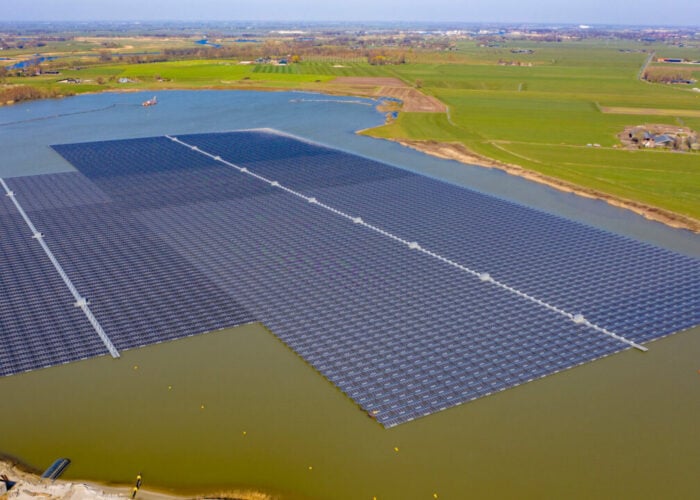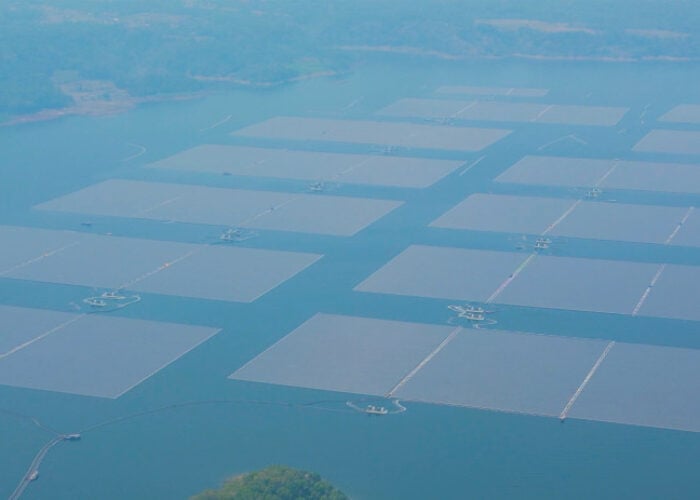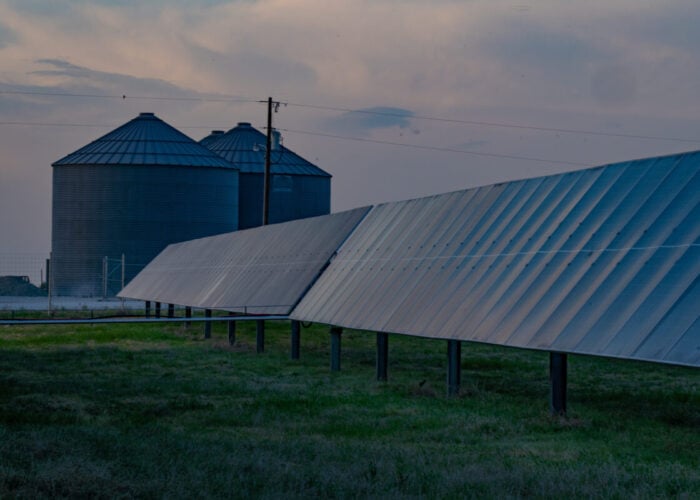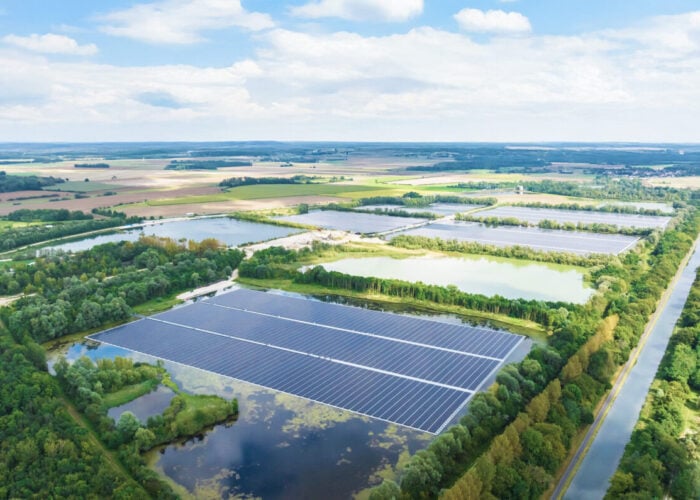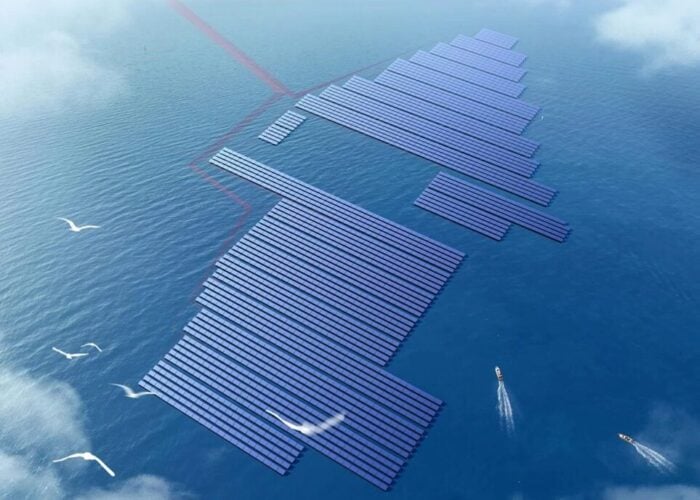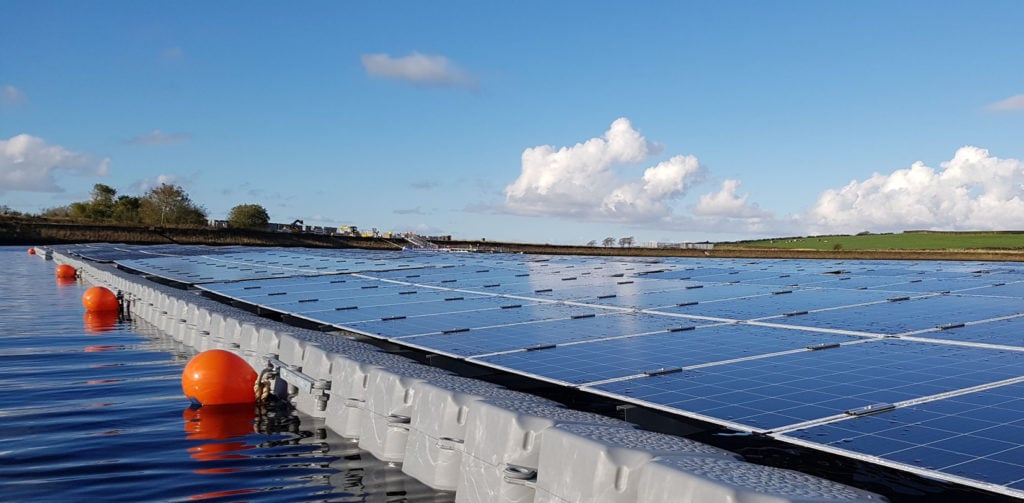
A new study in the UK has found that floating solar installations may help to reduce the impact of climate change on rivers and lakes and help preserve water quality, but more research is needed.
While the advance of floating PV installations (FPV) has proven that bodies of water can be used in the fight against climate change, a study from researchers from Lancaster University and the University of Stirling proposes that solar farms can improve a lake’s water quality in turn.
Unlock unlimited access for 12 whole months of distinctive global analysis
Photovoltaics International is now included.
- Regular insight and analysis of the industry’s biggest developments
- In-depth interviews with the industry’s leading figures
- Unlimited digital access to the PV Tech Power journal catalogue
- Unlimited digital access to the Photovoltaics International journal catalogue
- Access to more than 1,000 technical papers
- Discounts on Solar Media’s portfolio of events, in-person and virtual
Or continue reading this article for free
But deploying solar arrays on water could also bring about detrimental ecosystem effects due to the complex relationship between varying bodies of water and solar technology designs. Floating structures and anchoring system designs are, after all, based on the demands of each site.
The research
The researchers used data collected by the UK’s Centre for Ecology and Hydrology from lake Windermere, England’s largest lake, to model different scenarios that could show the potential impact of an FPV array.
The results showed that FPV systems can cool water temperatures by shading them from the sun, which could in-turn prevent the build-up of toxic green algae and increased water evaporation.
Additionally, floating solar installations, the researchers found, can reduce the duration of ‘stratification’, when water warmed by the sun separates into two layers with different temperatures.
Stratification can result in the bottom layer becoming deoxygenised, lowering water quality and making it unsuitable as drinking water.
The impact solar installations had on water temperate varied depending on the size of the project. Small arrays, which took up less than 10% of the lake’s surface, showed a “minimal” impact on water temperature, while larger installations had a greater effect. Arrays covering more than 90% of a lake, for example, could increase the chance of it freezing over in winter.
Further study required
However, it is also possible in some conditions in which the addition of a floating solar farm could increase stratification, according to Giles Exley, PhD researcher and lead author from Lancaster University. Exley said it is “critical” to fully understand whether the implementation of FPV could have positive or negative impacts on the local environment.
As this study concentrated on just one lake, the researchers said further modelling would be necessary to assess the “optimum size array, design and their effects for individual lakes and reservoirs”.
The researchers are continuing to build on their initial findings with further modelling and field studies to understand exactly how beneficial, or detrimental, PV can be to a lake or reservoir.
Exley said the effects of solar systems on both the body of water and stratification could be “comparable in magnitude to the changes lakes will experience with climate change”.
Floating solar, he said, could mitigate the effects global warming is predicted to have on bodies of water in the coming months and years.
“However”, he warned there are still “real risks of detrimental impacts, such as deoxygenation causing undesirable increases in nutrient concentrations and killing fish”.
“We need to do more research to understand the likelihood of both positive and negative impacts”.
There are currently three commercial-scale floating solar systems operating in the UK, but the nascent technology has been adopted by a number of key players in the renewables sector over the past few years. EDF Renewables started construction of its first floating solar project in southeastern France, last month, while developers such as EDP in Portugal, California’s White Pine and Chenya Energy in Taiwan have also tapped into FPV’s potential within the last year.
FVP installations make up a small minority, less than 1%, of the world’s solar capacity, and little is still known about how they affect the bodies of water that host them. Some estimates suggest under 3GW of FPV was installed globally by the end of 2019.

